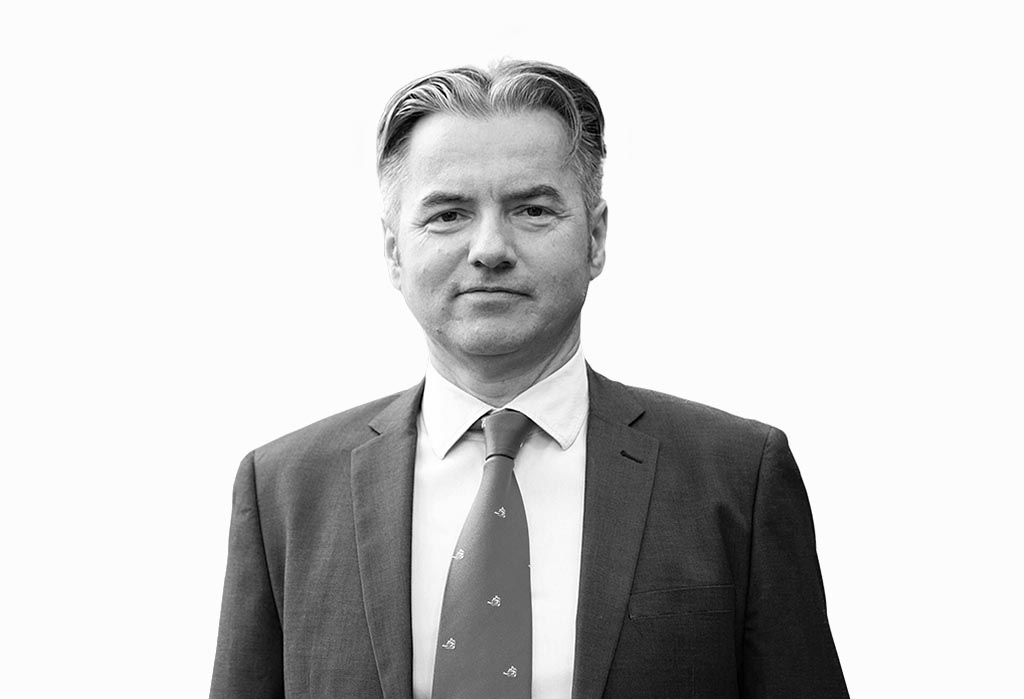By Dr. Metod Berlec
Twenty years have passed since the untimely death of Dr Jože Pučnik, who made an important mark on recent Slovenian history. His life, as I wrote in mid-January 2003, was that of an upright man who always stood by his thoughts, words, and actions. He became a nuisance for the Party when he became a contributor to Revija 57 in the mid-1950s. He tried to change the system from within. Due to some articles inappropriate for the authorities at the time, he was accused of “the criminal act of association against the people and the state and the criminal act of hate propaganda”. He was sentenced to nine years of rigorous imprisonment. He served five of them. As he himself later recounted, the prison regime was “pig-like”, he was often humiliated and beaten. He could have escaped from the prison, but he preferred to help a fellow prisoner, as a result of which he received even worse “beatings”. After he was released from prison, he started working with the magazine Perspektive. Due to articles such as “Face to face”, “Friendly interview”, and “On the dilemmas of our agriculture”, he was arrested again and imprisoned for two years. He was released in 1966. Since he did not get a job in Slovenia, he went to Germany. The communist government “lost” his diploma, so he had to study again in Germany.
In the early 1970s, he received his doctorate and became a professor at the University of Lünenburg. Pučnik started returning to Slovenia in the mid-1980s. He became a contributor to a magazine Nova Revija. He again “disturbed” the authorities with his critical articles. He was one of the main writers of the famous 57th issue of the Nova revija – Contributions to the Slovenian National Programme, for which he wrote the article “Political System of Civil Society”. Together with his colleagues, he was once again under pressure from the authorities. In Nova revija no. 63/64, in the article “Two fundamental demands”, he demanded the sovereignty of Slovenia and the establishment of political parties. Pučnik was one of the founders of the Social Democratic Union of Slovenia. He later became its president. Because of his divisiveness, great reputation, and firm and clear positions (“the opposition should state its demands clearly and decisively”), he became the president of the Democratic Opposition of Slovenia – DEMOS. As such, he ran for the presidency of the Republic of Slovenia in the first democratic elections after the Second World War in the spring of 1990. During the election campaign (and later) he became a symbol of Demos, representing its programme and main demands. Despite the failure in the elections, where he was defeated (?) by the last Party boss, Pučnik retained great influence as the president of Demos.
He was one of those who decisively contributed for Slovenians to have a plebiscite in which we decided on an independent path. He resolutely guided and encouraged the first democratically elected (Demos) government to achieve independence successfully. In 1993, he left the leadership of the SDSS (now SDS) to Janez Janša. As an MP, in the following years he pointed out the detours of the transition. He stood up for the rights of little people, for the rights of the humiliated and offended. Until 1996, he headed the parliamentary commission of inquiry into post-war mass killings. In the second half of the 1990s, he withdrew from active politics, but he still participated in Slovenian political space with his thoughts and analyses. He was interested in the future of Slovenia and its modernisation. He also spoke about this in his last interview, which he gave to the author of these lines in September 2002. In it, he expressed his belief that the departure of Milan Kučan from the presidential position and the increased influx of foreign capital into Slovenia will reduce the “importance of organised parastatal groups”. Among other things, he said: “Because of these political-economic cliques of the parastate, which perfidiously declared themselves to be the bearers of the ‘national interest’, we are lagging behind in the process of modernisation and thereby also endangering the economic foundation of the nation.”
When I spoke to him on the phone a fortnight before his death (January 11th, 2003), he was deeply disappointed because the spring candidate Barbara Brezigar did not win the presidential elections at that time, but the representative of the transitional left, the then Prime Minister Janez Drnovšek, won. How disappointed, horrified would he be today, if he was still alive, when he would see that the transitional left once again controls all three branches of government (legislative, executive, and judicial), and that under the current socialist government they even buried the former boss of the infamous Udba with military (state) honours…

